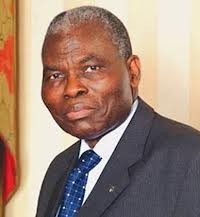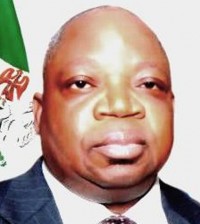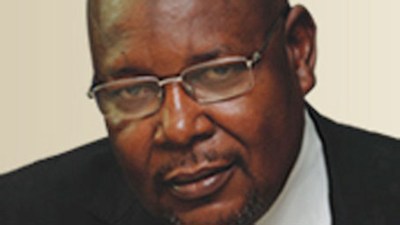2011 budget and its many challenges
Overtime, the nation’s budget has become an object of intrigues and bickering from preparation to assent by the President. This has become the trend since the last decade. Undoubtedly, this development has led to avoidable delay which is impacting negatively on budget implementation.
If it is not the ministries, departments and agencies (MDAs), it will be the National Assembly. The appropriation bill has become a veritable ground of muscle-flexing between the legislators and the executive arms of government. Ironically, when the budget is poorly implemented, both arms of government resort to trading of blames instead of working jointly to ensure that the practice is stopped.
This practice reached its peak in 2008 when the budget was passed in September, three months to the end of the fiscal year. This led to a less than 30 per cent implementation of the budget.
Stakeholders at various fora have expressed concerns and discontentment on the way the budget is being handled. Ironically, the policy makers seem to be helpless as nothing has changed despite the hues and cries. There is no gainsaying the fact that for Nigerians to enjoy the benefits that are projected in a budget, the budget needs to be passed weeks ahead of the commencement of the fiscal year.
Little wonder that at the end of the first quarter, Nigeria does not yet have a budget. The 2011 budget is yet to be assented to. As a matter of fact, nobody can really say where the budget document is presently. Only last week, the Finance Minister, Dr. Olusegun Aganga, said the 2011 Appropriation Bill had not been passed to President Goodluck Jonathan and was still being awaited.
The situation is growing worse on daily basis, the organised private sector (OPS) and perhaps the Federal Government are considering legal action to seek interpretation of relevant constitutional provisions of the right of the National Assembly to tamper with the budget as submitted to it by the executive arm.
What is budget?
A budget is a list of all planned expenses and revenues. It is a plan for saving and spending. In other words, it is a financial document used to project future income and expenses. The budgeting process may be carried out by individuals, companies or government.
The Budget Office of the Federation provides budget function, implement budget and fiscal policies of the Federal Government of Nigeria. The Budget Office is structured into six departments – four operational departments and two service departments: They are Revenue, Expenditure, Budget Monitoring and Evaluation; Fiscal Policy; Administration and Supplies, and Finance and Accounts
Each department is sub-divided into divisions for functional purposes.
Function and Output of Budget Office
All budget systems have three basic tasks: Maintain aggregate fiscal discipline, allocate resources in accord with government priorities and promote the efficient delivery of services.
Medium-Term Expenditure Framework (MTEF)
The MTEF was adopted in 1998 as part of a wide package of budget reforms, which included the Intergovernmental Fiscal Relations Act of 1997, IGFRA. That year, for the first time, the annual budget included a 3-year spending plan. Although only the single upcoming fiscal year is voted on by the National Assembly each year, the government presents numbers for the following two years as well. The MTEF is a tool to encourage cooperation across ministries and planning over a longer horizon than the upcoming fiscal year. This holistic approach is preferable to piecemeal, reactive, short term decisions that ordinarily characterize budgeting. The MTEF enhances stability by letting the three tiers of government know what resources will likely be available to them. This allows government’s planning to be more credible and accurate and encourages investment by making taxation, interest rates, and government spending more predictable. It improves transparency and can generate public discussion.
National Assembly
The two chambers of the National Assembly, the Senate and the House of representatives, passed the 2011 national budget of N4,971.8 trillion. Based on a benchmark oil price of S$ 75 a barrel, the production of 2.3 million barrels of oil per day, the exchange rate of N150 to the dollar and a 7 per cent Gross Domestic Product (GDP) growth rate. The budget is made up of N2,467,168,724,129 recurrent expenditure, N1,562,999,158,775 capital expenditure, N496,617,087,670 in statutory transfers and N445,096,682,115 for debt servicing. Joint Venture production stood at US$ 5.4 billion.
A breakdown of the budget shows that Defence, comprising the ministry of defence, army, air force and navy, got the highest figure of N311,692,345,592, while education was allocated N306,320,538,797. The Police formation and commands received N296,569,995,125.
The National Assembly, National Judicial Council and the Universal Basic Education, placed on first line charge, got N232.7 billion; N95 billion and N62.3 billion respectively while the Independent National Electoral Commission (INEC), preparing for general elections, got N52.1 billion.
FG grouse
There are strong indications that the Federal Government may head for the law courts against the backdrop of certain amendments carried out by the legislators on the appropriation bill.
The Minister of Finance, Dr. Olusegun Aganga, maintained that the 2011 budget as passed by the National Assembly was not implementable. He raised concerns about the high level of borrowing and deficit.
According to him, the budget as passed by the legislature keeps government spending near record high and undermines efforts to restore fiscal discipline.
The legislature approved a N4.972 trillion budget as against the N4.226 trillion presented by President Jonathan, representing an increasing planned spending by close to 20 per cent and taking it almost up to last year’s record level.
Aganga argued that the original N4.226 trillion budget was meant to mark the beginning of fiscal consolidation in Nigeria and would have narrowed the deficit to 3.26 per cent of GDP from 6.06 per cent in 2010.
He said the spending plans now implied a budget deficit of 4.23 per cent, higher than in the President’s December proposal despite the fact that the benchmark oil price had also been lifted to $75 a barrel from $65.
The Central Bank of Nigeria (CBN) governor, Mallam Lamido Sanusi, had equally raised concerns. At the end of the 75th Monetary Policy Committee (MPC) meeting in Abuja recently, Sanusi told newsmen that the high expenditure outlay in the budget was not supportive of the CBN’s drive for monetary policy effectiveness.
source :Tribune







